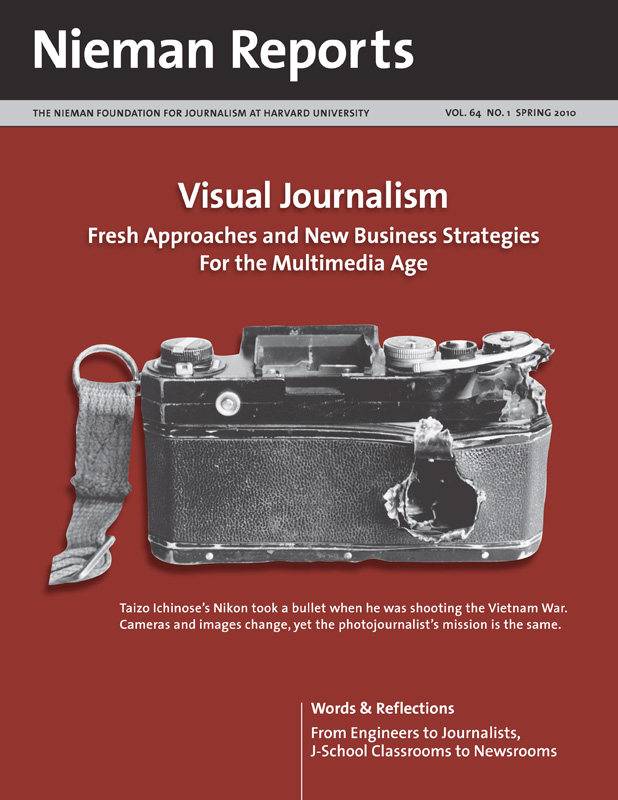At Tufts University’s Institute for Global Leadership (IGL), students are exposed to the ambiguities and complexities of the world. We encourage them to challenge assumptions and expand their understanding of how historical, cultural and ideological forces affect individuals and nations. And we help them to pursue careers in which they can act on what they’ve learned.
Such learning often involves absorbing the work of photojournalists whose images bear witness to events and actions for which there are no decisive answers or solutions that will prevent a reoccurrence. During the IGL’s 25 years, our students have been exposed to photojournalists’ images of terrorism, violence and genocide. Their pictures have told us about government corruption and poverty; they’ve shown us the faces of greed and of fear and opened our eyes wider to what inequality, deprivation and environmental degradation really look like.
Photographs remind us to look at what too often we wish to ignore or deny or simply forget. But these responses are too often accompanied by cynicism and the paralytic excuse of “inevitability.” Our students come to understand that as global citizens of an increasingly interdependent world, we can ill afford this attitude.
In fall 2003, our connection with photojournalism became much more real for students when James Nachtwey, a cofounder of VII Photo Agency, inspired them to create Exposure. This became the IGL’s photojournalism, documentary studies, and human rights program. “I have a strong respect for the institute’s decades of effort at understanding conflict, its causes and consequences, of the unflinching way it looks at famine, war, ethnic cleansing, and complex humanitarian emergencies,” he wrote in a letter, explaining his reasons for collaborating with us.
Adhering to the IGL’s nonpolemical pedagogy, Exposure prepares students for immersive experiences and guides them in their efforts to document through photography what they observe. One student photo essay focused on the destruction of Islamic culture in Bosnia used to prosecute accused war criminal Slobodan Milosevic at The Hague; another focused on the environmental crisis facing the island nation of Kiribati. Students have investigated the impact of Colombian death squads and the consequences of crude oil capitalism in Azerbaijan. They covered the first democratic election in Kyrgyzstan and the challenges that pastoralists confront in the Karamojong Cluster of Africa.
After graduating from Tufts, some of Exposure’s alumni now work as photojournalists. One of them provided the first images that The New York Times published on Darfur and covered military offensives in Iraq and the insurgency in the oil rich Niger Delta. Another captured the aftermath of Benazir Bhutto’s assassination in Pakistan and sent home images from the battle between Islamic militants in the Nahr al-Bared refugee camp and the Lebanese Army.
RELATED ARTICLE
“Taking Stock of the “Area Boys” in Lagos, Nigeria”
– Sherman TeichmanIn January, the IGL named the winner of its first Alexandra Boulat Award, created in memory of one of VII’s cofounders, on the same evening that the VII Photo Agency’s “Questions Without Answers” exhibition opened at the university’s art gallery. The award recipient, Samuel James, was an early member of the Exposure program at IGL.
In his letter from 2004, Nachtwey observed that our Exposure endeavor “will help us all to understand photography as a valuable tool that can help us learn how to make sense of the violence, the destruction, the chaos of this world.” Emphasizing the enduring value of the program, he wrote, “Most importantly, it can help to create a public awareness integral to the process of change.”
With the mentoring of photojournalists, the support of benefactors, and the structure that Exposure provides, our emerging photojournalists are heading in the direction that Nachtwey envisioned several years ago.
Sherman Teichman is the founding director of the Institute for Global Leadership at Tufts University. He was instrumental in bringing to the university VII Photo Agency’s exhibit, “Questions Without Answers,” which will also be published as a book by Phaidon.


